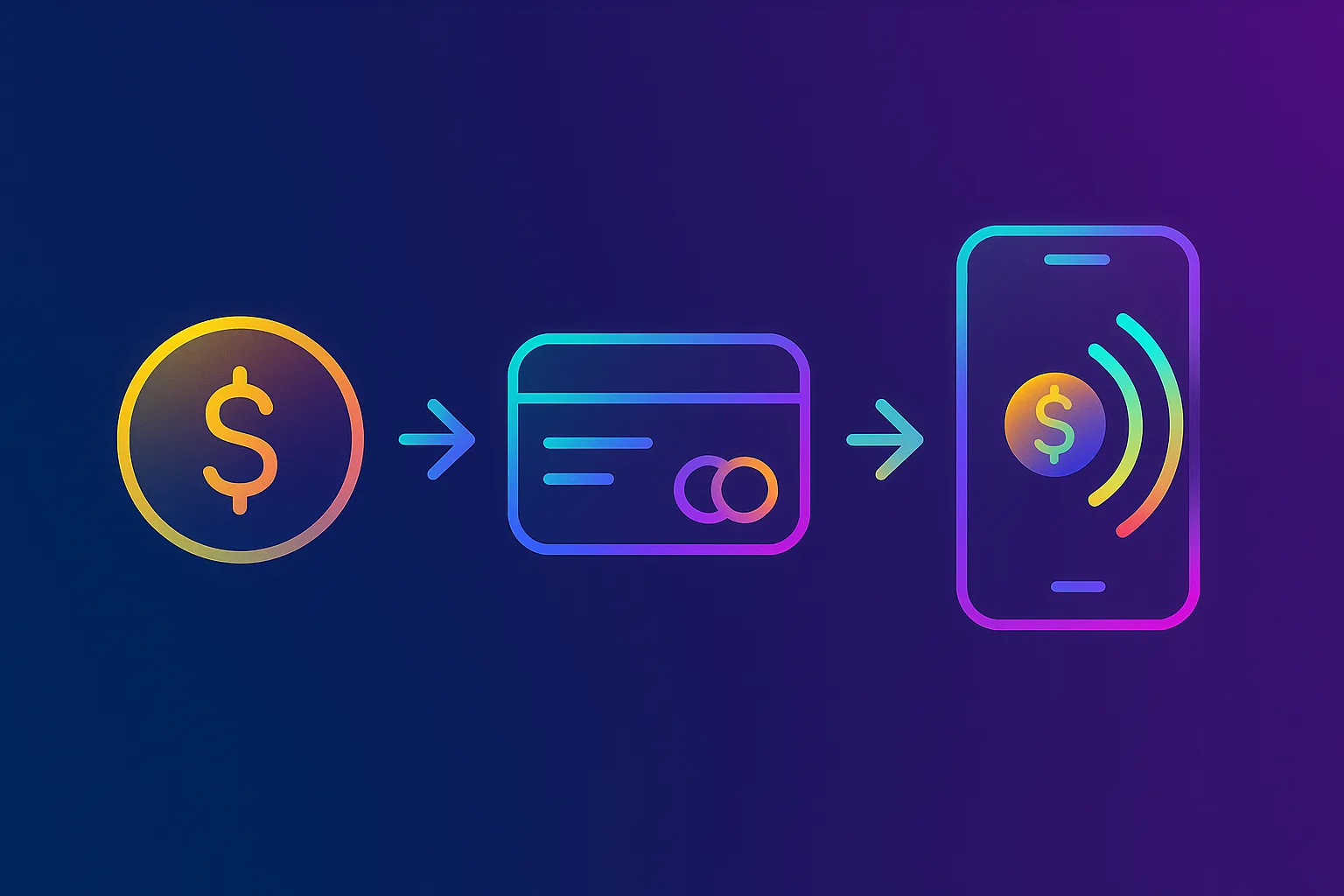Digital payments are at the forefront of transformation. Fintech, by nature a blend of finance and technology, is revolutionising how transactions are conducted worldwide. From tapping a phone at a checkout to transferring money across borders without hefty fees, the convenience and efficiency of digital payments are unmatched. There has been significant advancements in digital payment solutions, such as mobile wallets, peer-to-peer payment platforms, and cryptocurrencies. All of these have had an impact on traditional banking systems. As we transition into a more digitally-centric society, understanding these changes is essential for anyone engaged in financial activities.
The Shift to Digital Payments

The digital payment landscape is evolving rapidly, driven by fintech innovations. Traditional banking methods are being challenged by these new technologies. Mobile wallets, peer-to-peer platforms, and cryptocurrencies are at the forefront of this shift. Each of these technologies offers speed, security, and convenience, appealing to a tech-savvy consumer base.
Mobile Wallets: Convenience at Your Fingertips
Mobile wallets have transformed how consumers access and use their money. Services like Apple Pay, Google Wallet, and Samsung Pay enable payments directly from smartphones. Users can now pay for services and goods with a simple tap. The convenience of not carrying physical cards or cash has made mobile wallets extremely popular globally.
Security enhancements in mobile wallets also attract consumers. Features such as encryption and tokenization provide robust security measures. These advancements reduce the risk of fraud and theft, a major concern with traditional payment methods. The adoption rates of mobile wallets are soaring as a result. In urban areas, especially, mobile wallets have become a common payment method.
Peer-to-Peer Payment Systems: Simplifying Transactions
Peer-to-peer (P2P) payment systems simplify the process of transferring money between individuals. Apps like PayPal, Venmo, and Zelle allow users to send money instantly using just an email or phone number. This convenience has revolutionized personal transactions. Splitting bills, sending gifts, and paying for services has never been easier.
P2P platforms are not just convenient; they are also cost-effective. Many of these services charge minimal or no fees for basic transactions. This affordability has encouraged a shift away from traditional banking services. The rise of P2P payments reflects a broader trend towards digital financial services.
Cryptocurrencies: The New Frontier in Digital Payments

Cryptocurrencies represent the cutting edge of digital payment technologies. Bitcoin, Ethereum, and other cryptocurrencies challenge conventional financial frameworks. Their decentralized nature offers an alternative to traditional, centralized banking systems. This appeals to users who prioritize privacy and control over their financial transactions.
Cryptocurrencies also facilitate international transactions without the hefty fees typically associated with traditional banks. However, they come with volatility and regulatory challenges. Despite these issues, the interest in cryptocurrencies continues to grow. They are becoming a viable option for a range of transactions, from small personal transfers to large business deals.
Impact on Traditional Banking
Fintech innovations are reshaping the traditional banking landscape. Banks are now adopting these technologies to remain competitive. Many have developed their own digital payment solutions or partnered with fintech companies. This collaboration is crucial for banks to stay relevant in the digital age.
However, the rise of digital payments also poses challenges for traditional banks. They must navigate the regulatory complexities these new technologies bring. Additionally, banks need to upgrade their systems to handle digital transactions efficiently. The shift to digital requires significant investment in technology and training.
Changing Consumer Habits

Consumer habits are changing in response to advancements in digital payment technologies. There is a growing preference for digital financial interactions over traditional methods. Consumers value the ability to manage transactions from their mobile devices. This shift is particularly evident among younger generations, who are more comfortable with technology.
As digital payment options continue to grow, consumer expectations also evolve. Customers now expect instant, seamless financial transactions. The pressure is on traditional banks and new fintech players to meet these expectations. The future of banking and payments will likely be dominated by those who can innovate and adapt quickly.
The Future of Digital Payments: The Rise of Embedded Finance
Embedded finance is revolutionising the way businesses interact with financial services. By integrating payment solutions directly into non-financial platforms, companies can offer seamless user experiences.

Retailers, for instance, are embedding buy-now-pay-later (BNPL) solutions into their checkout processes. This trend is not only improving conversion rates but also enabling more flexible payment options for customers.
For businesses, embedded finance reduces the need for third-party intermediaries. It allows companies to capture more value while improving user satisfaction. This trend is expected to grow further as APIs and partnerships between FinTechs and traditional businesses expand.
The Role of Blockchain in Payments
Blockchain technology is providing unparalleled transparency and security in payment systems. Cryptocurrencies like Bitcoin and Ethereum have already made waves, but their applications extend far beyond speculative trading.
Cross-border payments are becoming faster and cheaper thanks to blockchain. Traditional systems often take days and incur high fees. Blockchain offers near-instant transfers at a fraction of the cost.
Despite regulatory uncertainties, blockchain’s adoption in payments is likely to expand. Businesses and governments are exploring its potential to create central bank digital currencies (CBDCs), which could further enhance financial inclusion.
The Shift Towards Real-Time Payments
Real-time payment systems are gaining traction across the globe. These systems allow funds to be transferred instantly, regardless of the time or day.
The UK’s Faster Payments system and Europe’s SEPA Instant Credit Transfer are leading examples. Such systems improve cash flow management for businesses and provide immediate access to funds for consumers.
As more countries adopt real-time payment frameworks, the global payment landscape will become increasingly interconnected. This trend will also spur innovation in services such as fraud detection and analytics.
Open Banking: A New Era of Payment Innovation

Open banking is enabling consumers to control their financial data. By sharing data with authorised third parties, users can access personalised financial products and services.
In payments, open banking facilitates account-to-account (A2A) transfers. These are often cheaper and faster than traditional card payments. Additionally, open banking supports better financial planning tools, making payments more transparent and efficient.
The ongoing development of open banking standards and regulations will drive its adoption. Fintech companies must capitalise on this opportunity by creating user-centric solutions.
Payments and Sustainability
Sustainability is becoming a critical focus in fintech, and digital payments are no exception. Many consumers and businesses now prefer payment providers that prioritise environmental and social responsibility.
Carbon-neutral payment solutions are gaining popularity. Companies are introducing features like carbon offset calculators within payment platforms. These help users understand the environmental impact of their transactions and make more sustainable choices.
Regulations and consumer preferences will continue pushing sustainability to the forefront. FinTech firms that integrate green initiatives into their payment solutions will stand out in a competitive market.
Artificial Intelligence in Payments

Artificial intelligence (AI) is enhancing the efficiency and security of digital payments. Machine learning algorithms are improving fraud detection by analysing transactional patterns and flagging suspicious activities in real-time.
AI also supports personalised payment experiences. Chatbots, for example, can assist users with payment queries and provide tailored recommendations.
Moreover, predictive analytics can help businesses optimise payment processes, ensuring faster and more reliable transactions. As AI technologies advance, their applications in payments will only increase.
Final Thoughts: The Future of Digital Payments is Looking Bright
The digital payments industry is evolving rapidly, driven by embedded finance, blockchain, real-time payments, and other innovations. These trends are reshaping how businesses and consumers approach financial transactions.
FinTech companies must adapt to these changes by leveraging new technologies and focusing on user experience. Sustainability and regulatory compliance will also play pivotal roles in shaping the future of payments.
For businesses, staying ahead in this dynamic landscape requires agility, innovation, and a deep understanding of consumer needs. The journey of digital payments is far from over, and its impact on the global economy will only grow stronger.














